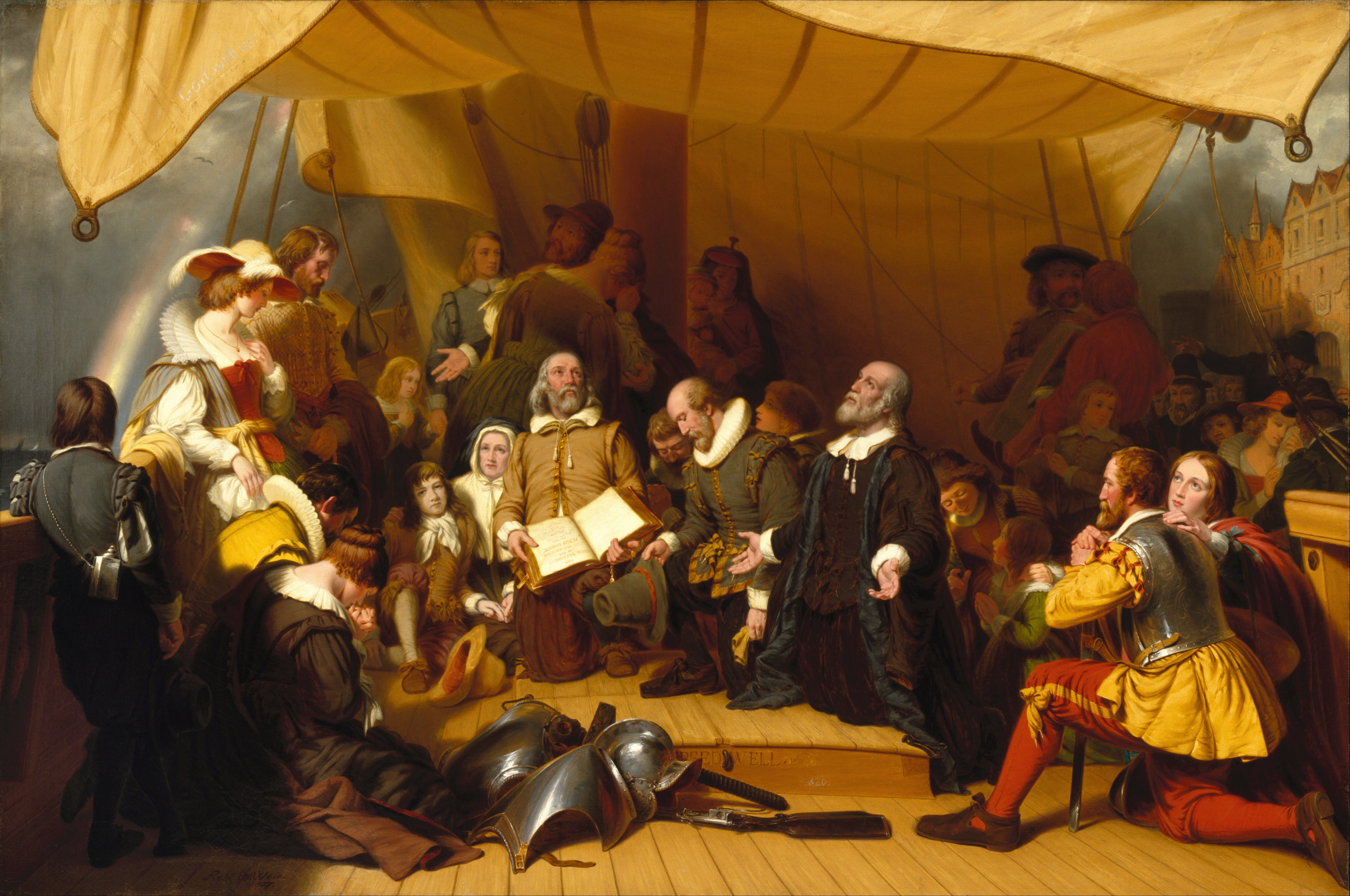Awake Mount Zion, A Call to the Remnant Bride – Book Written by Mark Bevan copyright 2024
Since the beginning of time, God has moved on the hearts of men to forsake the comforts of their homeland and make the journey to the promised land.
”Now the Lord had said to Abram: “Get out of your country, From your family And from your father’s house, To a land that I will show you.“”I will make you a great nation; I will bless you And make your name great; And you shall be a blessing. I will bless those who bless you, And I will curse him who curses you; And in you all the families of the earth shall be blessed.” So Abram departed as the Lord had spoken to him, and Lot went with him. And Abram was seventy-five years old when he departed from Haran.“
Genesis 12:1-4 NKJV
Pilgrim: 1: one who journeys in foreign lands: WAYFARER, 2: one who travels to a shrine or holy place as a devotee, 3 capitalized: one of the English colonists settling at Plymouth in 1620
When God called on Abraham to make a pilgrimage to a land he was unfamiliar with, he understood that God was leading his steps. He was walking by faith! For some, this leap of faith is easier than others. Could it be that faithful Abraham was desiring to have a closer walk with God all along? Perhaps his journey was as much an answer to prayer as it was a test of his faith.
Sometimes the calling for a pilgrimage takes different twists. Long before Abraham, God led Noah to build a boat to protect his family during the great flood. The ark was built not only as a shelter during the storms, but also to carry them to the place God chose to plant his family.
In more modern days, another group of pilgrims emerged which almost everyone in America is familiar with.
“The Pilgrims, also known as the Pilgrim Fathers, were the English settlers who traveled to America on the Mayflower and established the Plymouth Colony in Plymouth, Massachusetts (John Smith had named this territory New Plymouth in 1620, sharing the name of the Pilgrims’ final departure port of Plymouth, Devon). The Pilgrims’ leadership came from the religious congregations of Brownists, or Separatists, who had fled religious persecution in England for the tolerance of 17th-century Holland in the Netherlands.

The Embarkation of the Pilgrims (1857) by Robert Walter Weir
They held many of the same Calvinist religious beliefs as Puritans, but unlike Puritans (who wanted to purify the established church), Pilgrims maintained that their congregations should separate from the English state church, which led to them being labeled Separatists. After several years living in exile in Holland, they determined to establish a new settlement in the New World and arranged with investors to fund them. They established Plymouth Colony in 1620, where they erected Congregationalist churches. The Pilgrims’ story became a central theme in the history and culture of the United States.”
excerpt from Wikipedia.org
These pilgrims, were led by God to escape the persecution of their day, forsaking almost every known comfort and taking an incredible leap of faith, which led to the establishment of what has been regarded for almost 250 years as the most free country in the world. A place that is known to be a land where anyone can worship freely as they choose.
But just as in Abraham’s day, even in a land of perceived freedom, there is still oppression and persecution, leading to a desire for living a life separated unto God. Abraham was led from the land of Ur, known for the idolatry of its people, to a quiet place in the deserted wilderness.
Countless stories exist today of various people who journeyed into the unknown in search of their promised land. God has never stopped calling a people to come out of the nations of this world and be separated into Him. A people who sojourn in this earth, but are not restrained by its geographic, national or political boundaries. These individuals share the common bond of a citizenship derived from their Heavenly Kingdom. Desiring most to bring that heavenly kingdom down to earth, wherever their road leads.
An excellent modern example of this can be seen through the eyes of Blair Adams, the founder of Homestead Heritage.
“An Exodus” A JOURNEY TOWARD A CULTURE OF LIFE 1973-2013
Exodus Video | Homestead Heritage – https://www.homesteadheritage.com/videos/an-exodus/
This documentary tells the tale of one group of pilgrims, who coming out of what was then called “Hells Kitchen”, left the slums of New York City in search of a promised land. Their journey is amazing to hear, as a people came together from all walks of life, none knowing anything about how to survive off the land. Yet they chose to sell most of what they had and caravan across country, in search of a better life. Their trip took several stops along the way, before finally ending in Texas in the late 1970’s.
A Common Purpose
This road trip, probably seemed like a modern day wagon train to those who may have seen it. Along the way they learned many valuable lessons including the importance of relationships as a key to the long term success. (Read: Relationships, The Core)
The common similarity between all these examples and countless others, is a people who, despite the odds being greatly against them, displayed great faith, courage and commitment to see it through to the end. They all hold the qualities needed to be overcomers. They each found the place God wanted to plant them in the Kingdom and allowed Him to water and nurture their faith while bringing forth the fruit of the kingdom daily.
These are the types of people God is looking for today… Separatists if you will. Those who desire to come out from the establishment of man’s Babylonish kingdoms, and be separated to live unto God in His community.
Freedom
For almost 250 years The United States of America has been held in a place of renown among the peoples of the world, not because of her status as a superpower, but because of her heritage. A heritage of freedom that began with the signing of a document, now regarded by many as one of the most important and influential of all time…The Declaration of Independence.
“WHEN in the Course of human Events, it becomes necessary for one People to dissolve the Political Bands which have connected them with another, and to assume among the Powers of the Earth, the separate and equal Station to which the Laws of Nature and of Nature’s God entitle them, a decent Respect to the Opinions of Mankind requires that they should declare the causes which impel them to the Separation.
We hold these Truths to be self-evident, that all Men are created equal, that they are endowed by their Creator with certain unalienable Rights, that among these are Life, Liberty, and the Pursuit of Happiness.”
The Declaration of Independence
John Hancock among other founding fathers of the United States of America recognized that God as our creator, has granted to each of us, certain implied rights.
Right: Noun 2: something to which one has a just claim: such as the power or privilege to which one is justly entitled, as in voting rights, or the right to decide/choose.
In the passage quoted above the founders speak of these rights as superseding all governmental jurisdiction, since they are granted to us by God himself, and by the fact that any earthly government is created for the sole purpose of serving man. The passage continues…
“That to secure these Rights, Governments are instituted among Men, deriving their just Powers from the Consent of the Governed, that whenever any Form of Government becomes destructive of these Ends, it is the Right of the People to alter or to abolish it, and to institute new Government, laying its Foundation on such Principles, and organizing its Powers in such Form, as to them shall seem most likely to effect their Safety and Happiness.”
If we consider that any government which violates or attempts to supersede these rights… Life, liberty and the pursuit of happiness, is in fact an unjust entity which is serving to use or otherwise enslave its people, not protect their interests. These rights differ substantially from the rights granted by a constitutional or other governmental authority. In that these stated rights may be upheld by, but never taken away by any authority created by man.
Let’s look at the Biblical basis for these claims to what the writers list as unalienable rights.
Unalienable: A: impossible to take away or give up; B: incapable of being alienated, surrendered, or transferred
Life: Biblical definition & Usage; to have life, be alive.
“I call heaven and earth as witnesses today against you, that I have set before you life and death, blessing and cursing; therefore choose life, that both you and your descendants may live;” Deuteronomy 30:19
Live: Hebrew, châyâh; to live, whether literally or figuratively; causatively, to revive:—keep (leave, make) alive,
Jehovah, speaking in the above scripture, is promising two things to His people. The right to have life (be alive), and the power, or liberty, to make a choice between life or death, even whether we are blessed or cursed.
Blessed: adjective, A: of or enjoying happiness specifically, Christianity: enjoying the bliss of heaven; B: bringing pleasure, contentment, or good fortune
Look closely at what this one very important verse is saying. We see the three unalienable rights, spoken of by the writers of the Declaration of Independence, as having been granted to all mankind by God.
- Life – the right to live
- Liberty – the right to make choices
- Pursuit of Happiness – the right to choose blessing over cursing.
Liberty: Noun 1: the quality or state of being free:
- a: the power to do as one pleases
- b: freedom from physical restraint
- c: freedom from arbitrary or despotic control
- d: the positive enjoyment of various social, political, or economic rights and privileges
- e: the power of choice
The Power of Choice
Christians today have a choice to make, especially those who know and understand the times we are living in. The pilgrim fathers who sailed halfway around the world in search of religious freedom made a choice.
Recently during prayer time, the Lord said go me, “My people must make the choice to come out of Babylon son. They must see for themselves. If they don’t want to go, I can’t force them.” The choice is our to make, but make a choice we must. Stay in Babylon and suffer its plagues or follow the leading of the Holy Spirit into whatever wilderness He chooses to lead us.
